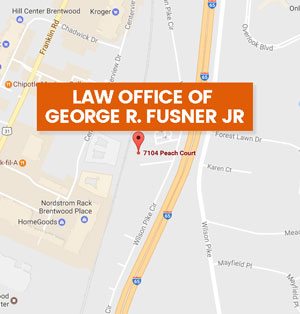 As winter approaches were are reminded of the approach of more hazardous driving conditions on the roadways. Here in Middle Tennessee it seems they are more severe since they tend to develop suddenly and do not appear to be sever or hazardous. I grew up in Upstate New York and learned to drive in the ice and snow. I remember taking my driving test in early December with snow piled on the side of the highway. It was obvious to slow down and take extra precautions. Tennessee is different. Black ice is rampant. Fog and 32 degrees creates such a condition. Snow often is light and does not seem to stick, yet it can cause bridges and overpasses to freeze before the roadway. I have handled tractor trailer crashes in these conditions and thus am familiar with the rules applicable to professional drivers.
As winter approaches were are reminded of the approach of more hazardous driving conditions on the roadways. Here in Middle Tennessee it seems they are more severe since they tend to develop suddenly and do not appear to be sever or hazardous. I grew up in Upstate New York and learned to drive in the ice and snow. I remember taking my driving test in early December with snow piled on the side of the highway. It was obvious to slow down and take extra precautions. Tennessee is different. Black ice is rampant. Fog and 32 degrees creates such a condition. Snow often is light and does not seem to stick, yet it can cause bridges and overpasses to freeze before the roadway. I have handled tractor trailer crashes in these conditions and thus am familiar with the rules applicable to professional drivers.
The Federal Motor Carrier Safety Administration oversees the operation of tractor trailers and buses on Interstate highways. Its motto is:
“The Federal Motor Carrier Safety Administration (FMCSA) is focused on reducing crashes, injuries, and fatalities involving large trucks and buses.”
To achieve this goal it has adopted numerous regulations all enacted to safe guard the public. When a lawyer takes a case involving a wreck involving a tractor trailer or bus he first looks to those regulations to determine the duty or standards that both the driver and owner are to keep. Yet they also are an excellent guideline for the driving public at large. What do the regulations say?
Hazardous conditions has its own set of rules. Section 392.14 states
Extreme caution in the operation of a commercial motor vehicle shall be exercised when hazardous conditions, such as those caused by snow, ice, sleet, fog, mist, rain, dust, or smoke, adversely affect visibility or traction. Speed shall be reduced when such conditions exist. If conditions become sufficiently dangerous, the operation of the commercial motor vehicle shall be discontinued and shall not be resumed until the commercial motor vehicle can be safely operated. Whenever compliance with the foregoing provisions of this rule increases hazard to passengers, the commercial motor vehicle may be operated to the nearest point at which the safety of passengers is assured.
Professional tractor trailer drivers are to exercise EXTREME CAUTION in those conditions. A tractor trailer wreck is not just a big car wreck. These special rules apply for the protection of the public. The public can also benefit by following the same rules.



